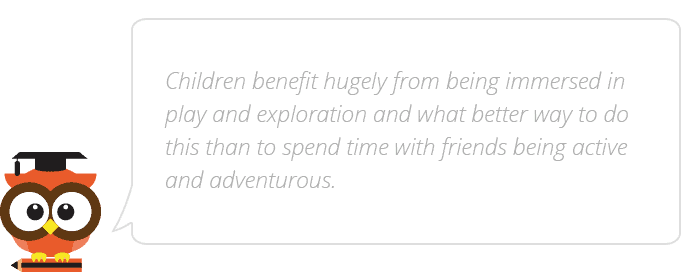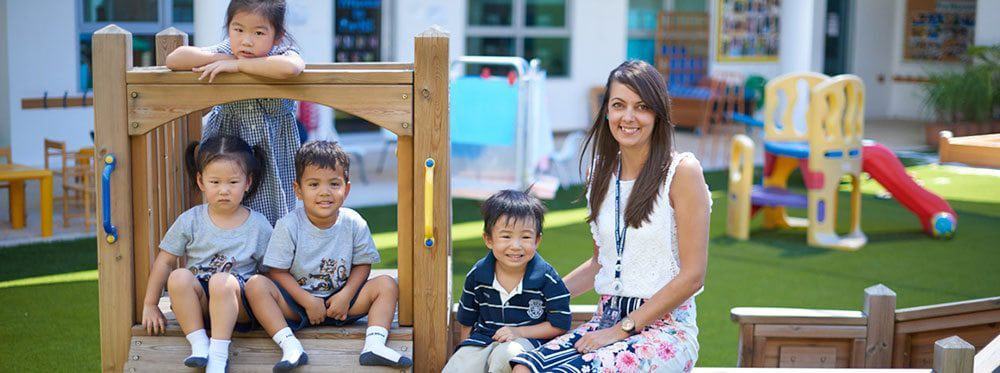The first term of the new school year is an exciting time for children, as they make friends, learn new things and widen their horizons. But it can also be a challenging time for all the family. Here are some quick tips to answer parents’ common questions and help ensure little learners get the best from school.
6 Tips for Helping Your Child Get Settled into School
How Can Parents Solve Sleep Problems When Returning After the Holidays?

Children thrive from routine and it’s even more important when they start school. Children will be physically and mentally tired after a day at school, and to help themconcentrate and get the best from school, they need an established sleep routine so they wake up feeling refreshed. When they come home, give them time to relax, and make sure that weekends aren’t so busy that they start another school week tired out.
How Can Parents Improve Their Child’s Behavior When Returning After the Holidays?

Some parents may find changes in their children’s behavior once they’ve started school (i.e., more tears and tantrums), but is that normal? This is completely normal. Many children find it hard to manage their feelings once they are greeted by parents and some find ‘home time’ really difficult. This is often because they are tired, adjusting to new routines, or still a little unsettled. Often, younger children don’t have the vocabulary to express themselves, and because they are frustrated they become upset. Help your child to learn how to name their feelings so they can seek help when they need it.

What Can Parents Do When Their Child Doesn’t Want to Go to School?

Why do children come home from school saying they loved it, but the next day they don’t want to go? It can take a long time for a child to realize that going to school is something you need to do every working day. Rest assured this is very common for children—Many parents are worried about leaving their child upset but most children settle quickly. It’s best if the transition is brief; when you say goodbye to your child leave straight away so they can settle sooner. The teachers and staff at your child’s school should have plenty of experience knowing how to comfort children and help them feel happy.
How Can Parents Help Their Child Be More Responsible for Their Belongings?

Sometimes, it can feel like half your child’s things end up in the lost-and-found, but with the right support, parents can help their children build better habits. Parents who demonstrate good habits and calmly remind their children without nagging or becoming angry can help in promoting their child’s independence and responsibility for their things–if they carry their belongings to school and put them in the right places, they are more likely to remember where they have put them and remember to take them home.
How Can Parents Find the Right Balance of After-School Activities, Socializing, and Homework?

School can be very tiring for children of any age; they have busy days that require a lot of mental and physical energy, and it is important to find the right balance between their core academic activities and the highly-beneficial extracurricular activities many students enjoy. For younger students, having two to three after-school activities per week can help them stay active and learn new hobbies and skills without becoming overwhelmed. As students get older, families may find that they can take on more extracurricular activities, such as sports, volunteering, or academic clubs. In addition to these after-school activities, children can benefit greatly from reading with their parents as much as possible.
Socializing is really important, as well. In the early years, a huge focus is placed on a child’s personal, social, and emotional development and playdates are an important part of this. Children benefit hugely from being immersed in play and exploration and what better way to do this than to spend time with friends being active and adventurous. Children will learn how to share, co-operate and how to empathize as they spend time learning how to get along with friends.
What Can Parents Do to Support Their Child’s Learning at Home?

Two main things – interacting with your child (talking and listening), and establishing routines and expectations. So immerse them in language and conversation. Talk to them about what you are doing, where you are going, what you might see and how it makes them feel. Children need to be equipped with the correct language to express themselves. Pay attention to your child’s interests and use this to support their learning in school. Talk to your child about their day at school and things they have found interesting. Please take the time to share stories with your child. Read to them – giving your child a love of reading will help them so much when they are learning to read.
It’s also important to establish expectations and routines with your child. Encourage your child to be independent and to enjoy this. Help your child to build up physical stamina through walking and exercise. Allow them to learn how to dress themselves and feed themselves.All these things will help your child thrive at school.
